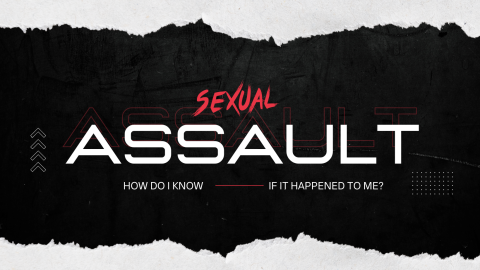
Was I sexually assaulted?
The feelings around sexual assault and abuse can be very confusing, but it may help to know the facts.
Sexual assault closely ties in with consent. If you did not consent to the sexual activity, it may be considered sexual assault, sexual abuse, or rape.
What is consent?
Consent means that both people must agree to a mutual activity, and either person may decide at any time that they want to stop.
Check in with yourself and your partner often to make sure that both of you are comfortable with what is happening. Respect the other person’s feelings.
Statistically:1
- 1 in 4 women in North America will be sexually assaulted during their lifetime.
- Only 6 in 100 sexual assault incidents are reported to police.
- Over 80% of sex crime victims are women.
- 60% of sexual abuse/assault victims are under the age of 17.
- 17% of girls under 16 have experienced some form of incest.
- 15% of sexual assault victims are boys under 16.
- 57% of aboriginal women have been sexually abused.
- 83% of disabled women will be victims of sexual assault during their lifetime.
These are just some of the devastating statistics around sexual assault in Canada. But how do you know if you have been sexually assaulted?
Sexual assault is any non-consensual (unwanted, unasked for, uninvited, not agreed to, etc.) sexual act, regardless of whether it includes touching or not (see list below).
Rape is a type of sexual assault which specifically includes non-consensual sexual penetration, regardless of whether it is with a part of the body or an object. It is important to note that, if you asked someone to wear a condom and they didn’t, or they took it off and continued sexual activity anyway, this can also be considered rape.
Sexual Abuse is any of the above, perpetrated on a minor.
In other words, sexual assault is any sexual act - done to you or in front of you - that you do not want or are not capable of consenting to. A person who is a minor*, or who is incapacitated by drugs or alcohol, or who is sleeping, cannot legally consent to sexual activity.
Sexual assault can include:2
- Penetration of the victim’s body (with a penis, fingers, or other objects); also known as rape
- Attempted rape
- Forcing a victim to perform sexual acts, such as oral sex or penetrating the perpetrator’s body
- Fondling or unwanted sexual touching, above or under clothes
- Any type of sexual contact with someone who cannot consent, such as someone who is underage, has a physical or mental disability, or is unconscious/passed out
- Sexual coercion (coercion is unwanted sexual activity that happens after someone is pressured, tricked, or forced in a nonphysical way)
- Sexual contact with a child
- Incest (sexual contact between family members)
- Forced or unwanted watching of sexual activity or pornography
*A minor in Canada is under 16, except when the sexual activity is within a relationship of trust, authority, or dependency, in which case the age of consent is 18.
There are “Close in Age” Exceptions: 3
A 14- or 15-year-old can consent to sexual activity if the partner is less than five years older and there is no relationship of trust, authority or dependency or any other exploitation of the young person. This means that if the partner is 5 years older (or more) than the 14- or 15-year-old, any sexual activity is a criminal offence.
There is also a "close in age" exception for 12- and 13-year-olds. A 12- or 13-year-old can consent to sexual activity with a partner as long as the partner is less than two years older and there is no relationship of trust, authority or dependency or any other exploitation of the young person. This means that if the partner is 2 years older (or more) than the 12- or 13-year-old, any sexual activity is a criminal offence.
If I was sexually assaulted, should I tell someone?
Yes. Don’t keep it to yourself. Tell a trusted friend, counsellor, or other supportive person. Often, victims of sexual assault feel shame, or like it was their fault this happened. It is never your fault. The person who sexually assaults another is making the choice to do so.
When you tell someone, you are taking a step to break off the shame and get support. When you report the assault to police, you could help prevent this from happening to someone else. For more about reporting a sexual assault, click here. For reporting in Kingston, ON click here.
How do I report sexual assault?
You have several options for reporting sexual assault:
- Call 911. If you are in immediate danger, dial 911. Help will come to you, wherever you are.
- Contact the local police department. Call the direct line of your local police station or visit the station in person. If you are on a college campus you may also be able to contact campus-based law enforcement.
- Visit a medical center. If you are being treated for injuries resulting from sexual assault, tell a medical professional that you wish to report the crime. You can also choose to have a sexual assault forensic exam.
Here are some places you can contact for help:
Sexual Assault Centre of Kingston
400 Elliott Ave, Kingston ON K7K 6M9
(613) 545-0762
Crisis:
Dial 911 if you are in immediate danger
Ontario AWHL Crisis Line 1-866-863-0511
Ontario Indigenous Women’s Crisis Line 1-888-200-9997
Non-Crisis:
https://www.awhl.org/online-chat Online Chat Page
http://www.talk4healing.com/ Indigenous Women’s Support Line (24/7)
1-855-554-HEAL (4325)
For other provinces you can look up crisis and help lines here:
https://endingviolencecanada.org/sexual-assault-centres-crisis-lines-and-support-services/
Kingston Pregnancy Care Centre offers confidential peer support and free pregnancy tests. Contact us to make an appointment.
By: Lindsay ~ Client Services Director
Sources:
- https://www.sexassault.ca/statistics.htm
- https://ssaic.ca/wp-content/uploads/2017/11/Sexual-Assault-vs.-Sexual-Abuse.pdf
- https://www.justice.gc.ca/eng/rp-pr/other-autre/clp/faq.html
- https://www.rainn.org/articles/reporting-law-enforcement
